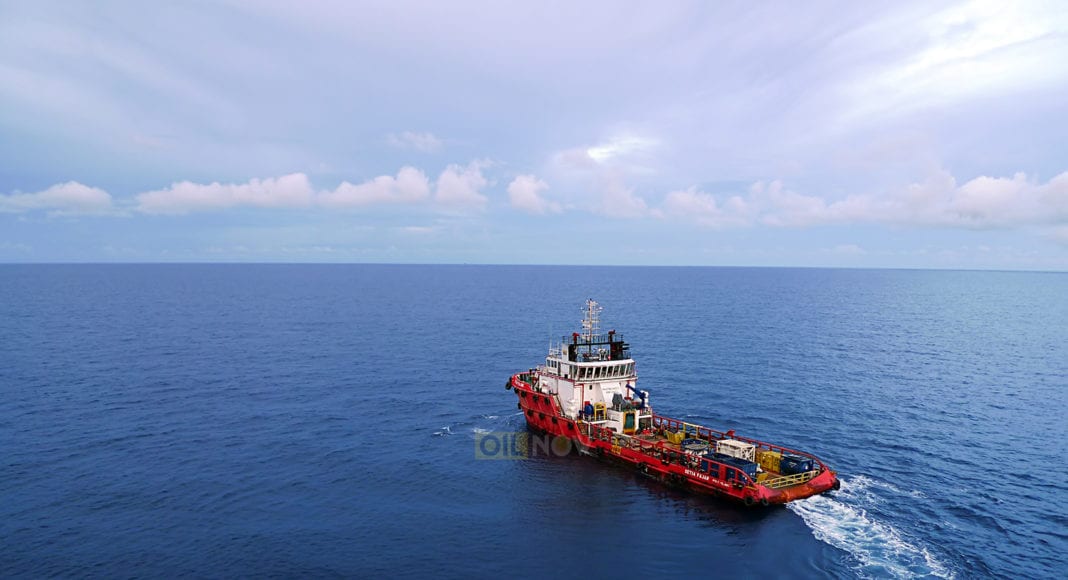To ensure all stakeholders are holding up their end of the bargain to make maximum use of local goods, skills and services in their operations, the President of Guyana, Dr. Mohamed Irfaan Ali, says government will be moving to implement procurement and local content audits.
During his keynote address at the opening ceremony of Saipem Guyana’s Offshore Construction Facility on June 5, the Head of State reminded that the Government will partner with investors who are not just committed in words, but actions in achieving meaningful local content goals.
“Right now,” Mr. Ali told the ceremony’s participants, “we are looking at the organizational structure of Exxon. We have checks and balances on the government’s side too, and Exxon and the government; we have very frank meetings.”
ExxonMobil is the operator of the 6.6 million acres Stabroek Block offshore Guyana where it has found more than 9 billion barrels of oil equivalent resources to date. It is the only company so far producing oil in the South American country.
On the auditing side, the President indicated that the Government is preparing to hire a specialist who will examine Exxon’s procurement methods. In addition to this, this specialist will ascertain whether Exxon’s procurement has been pushing for the utilization of local goods and services.
“We have to be open and transparent,” Mr. Ali noted. “It may be uncomfortable sometimes, but it is the environment in which we will all operate in. And any investor and any government want a predictable environment, so it is best we all know up front where we are going.”
Speaking at the same event, President of ExxonMobil Guyana, Alistair Routledge, said the company is keen on ensuring it has a transparent procurement process, and in so doing, that it supports local businesses.
“One of the major initiatives that we started back in 2017, before the first project in fact, was the Centre for Local Business Development. That has been incredibly successful, and we continue to invest and support them,” the ExxonMobil official stated.
He added that to date more than 2,600 Guyanese and over 600 local suppliers are supporting the development of the massive offshore hydrocarbon resources.
“In this first quarter of 2021 alone, more than eight and a half billion Guyana dollars were spent with those suppliers,” he said.
ExxonMobil, Stabroek co-venturers launch US$100 million initiative in Guyana
Notably, the Government of Guyana through the Ministry of Natural Resources has already begun the search for the specialists Mr. Ali alluded to.
According to the Terms of Reference for consulting services for procurement process review on oil field services and equipment (OFSE), the consultant will review the process for the acquisition of market intelligence and pre-qualification of suppliers; ensure the tender process is carried in accordance with international best practice and maximize the use of restrictive/prescriptive specifications; take steps to maximize opportunities for local content, amongst other key objectives.
The consultant will work with the Government’s Senior Petroleum Economist and report to its Senior Petroleum Coordinator and will ensure that the project’s deliverables are achieved.
Meanwhile, the government is also seeking requests for proposals for consulting services for value engineering on critical infrastructure. According to the Terms of Reference (TORs), this consultancy will play a lead role in reviewing and guiding projects in a direction where positive outcomes will be to maximise transparency and the achievement of efficient competitive value engineering as a standard approach.
According to the TORs, the consultancy presents an “excellent opportunity” to work closely with both Exxon and the government to investigate current and existing procedures which will unlock and develop a more collaborative working approach and contribute significantly to the cost efficiency in the industry — and in so doing, build a strong external profile and network in the industry.
Furthermore, the consultant would be required to report to the Senior Petroleum Coordinator in areas of critical infrastructure. These include but are not limited to a systematic view of value (ratio of function to cost); benchmarking to international standards; interface with procurement process review; analyse equipment/ goods data to determine trends and create/develop a strategic long-term plan for the development of value engineering.



